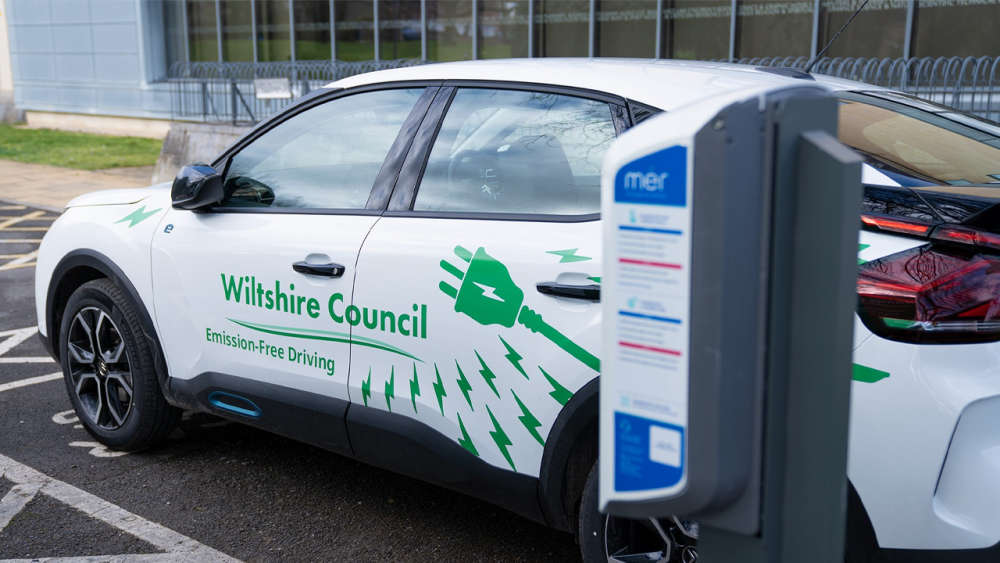
Wiltshire Council’s investment in its electric vehicle fleet is saving more than £54,000 in 2025, while also reducing carbon emissions and helping to improve air quality throughout the county.
The savings come from the reduced operating costs achieved by switching to electric vehicles – and there are further operating cost savings each year until the council’s fleet is fully electric, in 2030.
The council currently has 181 vehicles in its fleet, 83 of which are fully electric or hybrid, representing 46% of the total. It is replacing petrol and diesel vehicles as they reach the end of their working lives, with the aim of completing the transition by 2030.
Cllr Martin Smith, Cabinet Member for Highways, said: “The focus of switching our fleet to electric vehicles is often on the reduction in carbon emissions and the improvements in air quality that EVs can help to bring. Of course, these are hugely important as we look to become carbon neutral as an organisation by 2030.
“However, it is important to note the savings in operating costs too – which is also delivering better value for money for Wiltshire taxpayers.
“So, investing in electric vehicles is a win-win for us, the environment and for the Wiltshire public.”
As well as the council’s own fleet moving to electric vehicles, the council’s contractors are making great strides in this area, too. For example, in January, the council invested in a 100% electric Refuse Collection Vehicle (eRCV), which is being trialled around the county by its waste collection contractor, Hills.
The council’s Streetscene contractor, Idverde, has also reduced its carbon emissions by 94% compared to the baseline at the start of the contract in 2022. This has been achieved by converting to electric equipment and using alternative fuels.
M Group, the council’s highways contractor, has saved 203 tonnes of CO2e in the financial year 2024-2025, by switching its Wiltshire fleet from diesel to hydrotreated vegetable oil (HVO), a biofuel derived from plant-based oils. This is a 90% reduction in CO2 emissions compared to using diesel.

 Man jailed for assault at Bridge Tap pub
Man jailed for assault at Bridge Tap pub
 PHOTOS: Baby Pigmy goats are New Kids on the Block at Longleat
PHOTOS: Baby Pigmy goats are New Kids on the Block at Longleat
 New Lidl store plans 'Grand Opening'
New Lidl store plans 'Grand Opening'
 Review: Rock and Roll Man. "It's quite possibly the best show I have ever seen at Salisbury Playhouse!!"
Review: Rock and Roll Man. "It's quite possibly the best show I have ever seen at Salisbury Playhouse!!"
 Wyndham Road to be closed in phases for gas works
Wyndham Road to be closed in phases for gas works
 Two pensioners die after A30 crash at Nether Wallop
Two pensioners die after A30 crash at Nether Wallop
 8 days until Salisbury's second Lidl store opens
8 days until Salisbury's second Lidl store opens
 New 'boozer' to open in the city centre
New 'boozer' to open in the city centre











